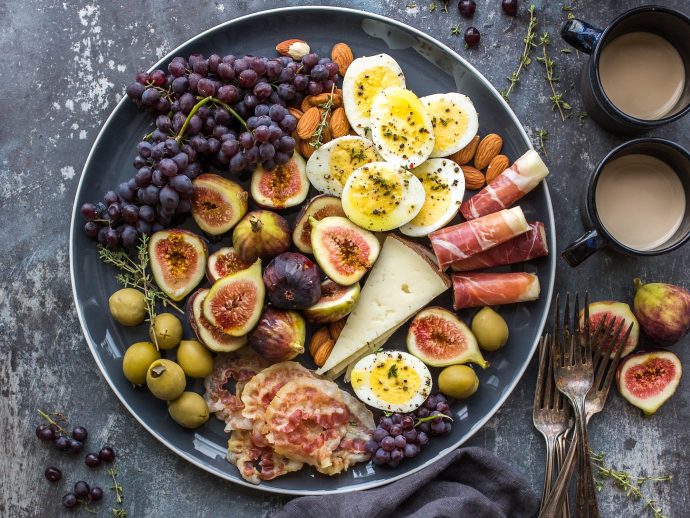Re-examine your relationship
Food is inescapable. No other life necessity so closely aligns itself with our well-being and our distress, our celebrations, and our grievances. We spoil ourselves with it or deny ourselves until it spoils on its own. Food is also meaningful. It is a friend when we are lonely; it is revenge when we are hurt; it is even occasionally (sorry, peas) a compress when we are injured.
But what happens when your relationship with food could use some mending? Here’s how to fall back in love with food.
Struggling with portion control?
Occupational therapist and psychotherapist Ann Kerr explains that not only is food a necessity, but it can also be a mechanism for emotional healing.
“It’s a wonderful sensory experience. It’s a very social experience. And, we have to eat … If people are feeling very troubled or anxious [food] can also be a big distraction; it resets them … Some people depend on that to kind of cope.”
One common struggle is with portion control. Prior to 1926, the only way to purchase potato chips was from a shopkeeper, who scooped them from a larger barrel (imagine: a barrel of chips!) into a sensibly sized bag. Today, there is no gatekeeper between the individual consumer and the family-sized portion.
How much is too much? Kerr says we are already well-equipped to self-manage. Nature awarded us with an appetite. We should stop eating when … wait for it: “You feel full.
“You have good satiety cues and all of a sudden you just don’t want any more. It’s either too sweet, too salty, too fatty, or too much,” says Kerr. Your body will tell you that.
Struggling with the winter season?
Registered dietitian Leslie Beck says it’s healthy to enjoy those starchy January meals, but also explains that biology pushes us to do just that.
“Winter food cravings are linked to levels of serotonin, a brain chemical that improves mood, reduces your appetite, promotes sleep, etc. Research has found that our brain’s production of serotonin is lowest in the winter months … Carbohydrates are important; they help to balance serotonin levels in the brain, and it’s just a matter of having the right size [servings].”
Beck also stresses the importance of being kind to yourself. A piece of cake? An extra dessert? If the occasion calls for it, she says, “Do it. Because if you decide to give yourself permission, you’re less likely to overeat. You’ll have it; you’ll enjoy it.
“Whereas if you go into something saying, ‘I can’t, I shouldn’t, this really isn’t part of my plan’ … Then you end up eating more than you wanted to. You feel guilty, you beat yourself up, and it’s harder to get yourself back on track with the next meal or the next day.”

